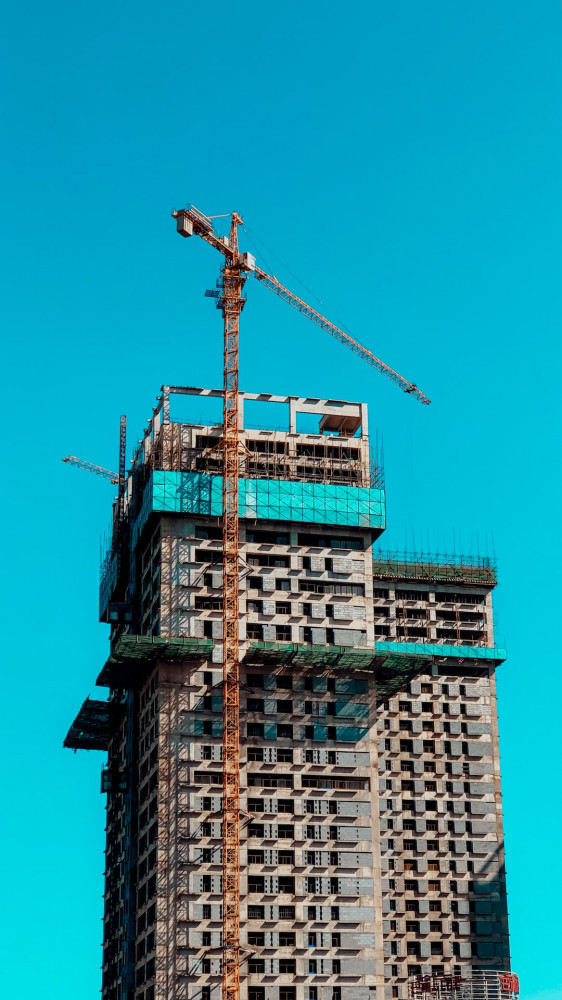 Procurement Excellence: The Contractor Selection Process for Major Projects
Procurement Excellence: The Contractor Selection Process for Major Projects
Embarking on a major project is a monumental endeavor that demands careful planning, meticulous execution, and the right team of designers and contractors to bring your vision to reality in the optimum time, to budget and to quality.
The contractor selection process plays a pivotal role in determining the success of the project. From the initial prequalification stage to the final decision, each step is a crucial part of building a strong foundation for a successful outcome. In this article, we’ll guide you through the intricacies of the prequalification and tendering, contractor selection process for major projects.
**1. Prequalification Process: Building the Shortlist**
The journey begins with the prequalification process. This phase involves assessing potential contractors based on criteria such as their experience, financial stability, technical expertise, and previous project performance. Contractors submit prequalification documents that provide insights into their capabilities and qualifications. By evaluating these submissions, project owners and their project management teams can narrow down the list of potential contractors to those who meet the project’s prerequisites, and these will be added to the tender list. So the filtering of non suitable contractors begins at this stage.
**2. Tendering Or Request for Proposals (RFP) Stage: Defining Expectations**
Once the shortlist is established, the project owner issues a Tender Invitation or a Request for Proposals (RFP) to the selected contractors for the bid list. The Tender Documents or RFP outlines the project’s scope, specifications, requirements, and evaluation criteria. Tendering contractors respond with detailed proposals that demonstrate their understanding of the project and their approach to achieving its objectives. The Tender or RFP phase allows project owners and their project management teams to gain a deeper insight into how each contractor plans to execute the project and what differentiates them from the competition.
The Type and Form of contract is identified in the Prequalification documents and further confirmed in the tender invitation or RFP documents.
This process starts to narrow down the bidders into those who have thought carefully about the project and those who have just given it a token review and not such a thoughtful Tender proposal.
**3. Proposal Evaluation and Interviews: Delving Deeper**
After receiving Tender proposals, project owners and their project management teams then evaluate each submission based on predetermined criteria, and score each bid submission. This evaluation may involve assessing technical competence, financial viability, proposed schedule, Health & Safety capability, past performance, and more. In all cases, interviews or presentations may be conducted to clarify certain aspects of the Tender proposals and gauge the contractors’ alignment with the project’s goals. This formal interview process is an important part of the selection process to identify who is the most suitable contractor to appoint for project execution.
**4. Reference Checks and Due Diligence: Ensuring Reliability**
As the evaluation progresses, reference checks and due diligence come into play. Contacting references from the contractors’ previous projects provides valuable insights into their performance, collaboration, and adherence to timelines. Due diligence encompasses assessing the contractors’ financial stability, legal standing, and overall reputation within the industry. It is a vitally important part of the selection process to appoint the most suitable contractor for project execution.
**5. Negotiation and Contracting: Crafting the Agreement**
Following a thorough evaluation and due diligence, project owners and their project management teams engage in negotiations with the chosen contractor. This phase involves finalizing the project scope, terms, conditions, pricing, and timelines. A detailed contract is drawn up, outlining the roles, responsibilities, deliverables, and performance expectations of both parties. This contract serves as the foundation for a successful partnership throughout the project’s lifecycle.
The form of contract will have been identified prior to the tender stage, but any issues with contract clauses need to be finalised and agreed before the contract signature.
**6. Commencement and Management: Turning Vision into Reality**
With the contractor selected and the contract in place, the project enters the mobilisation and execution phase. Effective project management, regular communication, and collaboration between the project owner´s project management and design team and the appointed contractor are paramount. Continuous monitoring ensures that the project stays on track, adheres to timelines, and meets quality standards.
This is when the effectiveness of the project management team and the appointed designers and chosen contractor is proven, as major projects are essentially about collaborations between the involved parties.
**7. Success Evaluation: Reflecting on the Outcome**
Upon project completion, a comprehensive evaluation is conducted to assess the contractor’s performance, adherence to the contract, and overall success of the project. This evaluation informs future decisions and contributes to refining the contractor selection process for subsequent projects. Often Lessons Learned are recorded for future reference by all the involved parties.
Summary & Conclusion
**A Collaborative Journey**
Selecting the right contractor for a major project is a multifaceted process that requires careful consideration, analysis, and collaboration. With each step meticulously planned and executed, project owners and their project management and design teams can confidently forge ahead, knowing that the chosen contractor aligns with their vision and goals. As a critical aspect of project success, the contractor selection process lays the groundwork for a transformative journey from concept to completion of the owner or project sponsor´s vision.
If you have a major project that you wish to commission then call Alan from Alpus Group and we can guide your contractor selection. Call Alan on 07539 141257 or 03332241257 schedule a call with Alan on https://calendly.com/alanje or drop an email to alan@alpusgroup.com.

This article is a valuable guide to achieving procurement excellence through the contractor selection process in major projects. With detailed insights and practical recommendations, it sheds light on the crucial steps involved in selecting contractors for complex endeavors. The thorough exploration of this process serves as a roadmap for project managers and procurement professionals, offering strategies to ensure the right contractors are chosen for successful project outcomes. An essential read for those aiming to elevate their procurement practices and contribute to project excellence.
Hi Brian, Thank you very much for taking the time to read and comment on our post. Not only that, you clearly appreciate the value in following the right processes so as to achieve the optimum project outcomes, thanks.